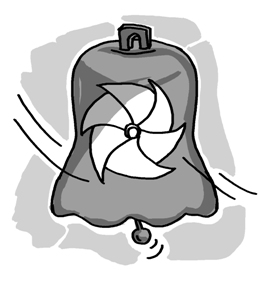
Illustration: Lu Ting/GT
It was not until Tuesday that Shanghai residents were informed that the city had experienced its highest rainfall in 52 years. Many Shanghainese found themselves either stuck in their neighborhood or unable to reach their offices on Tuesday, the first working day after a week-long National Day holiday.
The double-typhoon effect caused heavy rain to fall on the city throughout Monday night and Tuesday morning. Many parts of the city's drainage system failed to effectively deal with the deluge.
On Monday evening my daughter was anxious but excited. She kept looking out of her window. Eventually, she asked, ''Why hasn't our school notified us that we have one more day off?''
We didn't take her seriously and even joked that the gods would turn down her request to punish her laziness. At the time, my husband and I had no idea how much rain was still on its way to Shanghai.
In fact, the official Weibo account of the city's education authority released a notice at 8:47 pm Monday reminding parents and students to be careful on the way to school the following day because of the bad weather. It also said that latecomers wouldn't be recorded or punished.
Shanghai Fabu, the municipal government's official Sina Weibo account, later announced that by noon on Tuesday, the average rainfall reached 152.9 millimeters in the city's 11 inspection sites and the figure peaked at 244.2 millimeters in suburban Songjiang district.
On Tuesday morning, Shanghai Fabu announced that for the first time this year, the city's flood control bureau activated the red alert precaution level, the highest level.
But there were no updated responses to the red alert from other government departments, like the educational bureau.
So on Tuesday we heard many stories of commuters' arduous journeys to their workplaces. One man said that it took him six hours to reach the inner ring road in downtown Shanghai from the suburban outer ring road where he lived. When he reported his location to his supervisor halfway, he was told to go back home since it would have been impossible for him to reach his company before 6 pm when business hours stop.
It's no surprise that we have heard so many complaints following the heavy rainfall and flooding. The public had two main points. One is the lack of an accurate forecast from the city's meteorological bureau and the other is the slow or, in some cases, lack of response from relevant government departments guiding residents to cope with the storm.
We have to admit that Shanghai's weather forecast bureau has done a good job in recent years. It is many residents' habit to turn to the forecast before leaving home. They know whether it's ok to leave their clothes drying outside while they are out. They decide whether they need to take an umbrella with them or wear rain shoes.
I myself am a loyal follower of the weather report. It always points out the specific period when there will be rain in a certain area. It rarely lets me down when I follow its guidance so I always proudly advise my friends from other provinces to follow the local report when they stay in Shanghai to ensure that they plan their time here well.
But this time we were not sufficiently prepared for the typhoon and huge rainfall. The general public underestimated the seriousness of the weather. When most Shanghainese were concerned about the fates of people who live in areas where the typhoon made landfall, they didn't even realize that Shanghai had become a victim. They were totally unprepared to encounter such a messy working day on Tuesday after a week's relaxation.
I have to say that an error can never be overlooked because of previous good performances. The weather bureau's role is to provide accurate and timely forecasting information to the public. Typhoon Fitow should be a good lesson for the bureau to serve the public better next time.
Parents in particular have reason to complain as they fought their way to escort their children to school in a flooded city. Both the education authority and the flood control department should have judged the situation more accurately earlier so that timely countermeasures could be introduced to deal with the issue. What if something happened to students on their way to school?
As administrators responsible for the safety of millions of students, they should have the foresight and judgment to make a right decision before a situation becomes unmanageable.
Because of the city's geological location, it's inevitable that people in Shanghai will encounter typhoons and flooding. But next time we hope the city won't be so passive and underprepared in the face of extreme weather.
The author is the managing editor of Global Times Metro Shanghai. fengyu@globaltimes.com.cn

